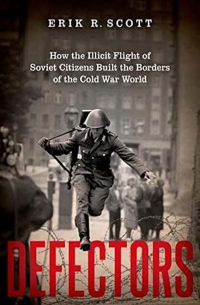The Berlin Blockade was already six weeks old when this article appeared proclaiming that peace with the Soviet Union was still possible:
-from Amazon:

"Russia and the U.S. are in the midst of another showdown on peace. Odds favor a settlement, not war."
"Peace terms are shifting closer to compromise. Russia is more interested in seeking peace, less interested in stalling... Each side is out to get the best possible terms. But prospects for easing the tension of cold war are good."
Click here to read about the Berlin Blockade. Shortly after the Soviet Union successfully tested their first atomic bomb, the brass hats who work in the Pentagon saw fit to take the first step in preparing to fight an atomic war: they gave the order to create a subterranean headquarters to house a military command and control center for the U.S. and her allies.
"The finished chamber, according to local observers, will be 3,100 feet long, contain four suites for the top brass (the Joint Chiefs of Staff, among others), and provide operational quarters for some 1,200 technicians in peacetime, or 5,000 if atomic bombing threatens the Washington command."
Commonly known as "Site R", it is located not terribly far from the presidential retreat, Camp David, and in the subsequent years since this article first appeared, the complex has grown considerably larger than when it was first envisioned. Today, Site R maintains more than thirty-eight military communications systems and it has been said that it was one of "undisclosed locations" that hosted Vice President Dick Cheney (b. 1941) shortly after the September 11th terrorist attacks.
A related article can be read here...
Washington's growing distaste for the Chinese Nationalist dictator Chiang Kai-shek was reaching fever-pitch that last week in January, 1950, when President Truman's Secretary of State Dean Acheson (1893 – 1971) presented the administration's Asia policy:
"No official military aid for Generalissimo Chiang Kai-shek's Chinese Nationalist government, either on the island of Formosa [Taiwan] or anywhere else." Felix Morley (1894 – 1982), one of the senior Washington columnists in the early Cold War era, summarized the various concerns involved in the diplomatic recognition of Communist China as well as the surprising issue as to whether or not it was what the Soviet Premiere actually preferred at the time?
"There is good reason to believe that the Communist high command in Moscow does not want us to recognize the new Communist government of China" "But in recent years we have mixed up diplomatic recognition and moral approval. The absurd result is that we recognize Russia and not Spain, and are at present opposed to recognizing China even though we fear that may be cutting off our nose to spite Stalin's face." War-weary Japan recognized that when the U.S. and her assorted allies went to war in Korea, she too, could play an important roll in the struggle as a reliable, non-combatant partner. The Marshall Plan was a U.S. Government aid program that was instrumental in the reconstruction and economic resurrection of 16 Western European nations following the devastation caused by the Second World War. It is named for Secretary of State George C. Marshall, who co-authored the initiative with the help of the prominent business leader William Clayton, and the American diplomat George F. Kennan.
The attached article concerns the first draft of the scheme that was drawn-up by Marshall and the representatives of these 16 nations during the Summer/Fall of 1947. The amount of cash to be distributed (and paid back over a period of 30 years) was $22.44 billion.
Marshall knew that such an economic stimulant (and the liberties that would follow) would serve to guarantee that Western Europe would not fall into clutches of the Soviet Union.
To read about the Soviet reaction to the Marshall Plan, Click here
Read more articles from PATHFINDER MAGAZINE...
|